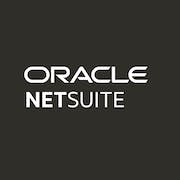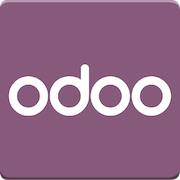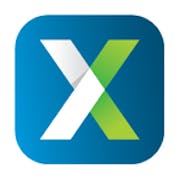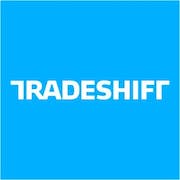Attention, savvy business owners and finance professionals! Are you tired of drowning in a sea of invoices, struggling to keep track of mounting payables and overdue payments? Well, rejoice, because the solution to your accounts payable nightmares is here! Introducing our comprehensive Accounts Payable Software Buyer's Guide—a definitive resource packed with essential information to help you choose the perfect software solution for your organization. In this guide, we will navigate the complex landscape of accounts payable software, demystify the jargon, and equip you with the knowledge and insights you need to make an informed decision. So, buckle up and get ready to revolutionize your accounts payable process, streamline your operations, and reclaim valuable time and resources. It's time to take control of your financial management with the power of cutting-edge technology. Let's dive in!
What is Accounts Payable Software
In today's fast-paced business environment, managing financial processes efficiently is crucial for success. Accounts payable, a critical aspect of a company's financial operations, involves tracking and processing payments to vendors, suppliers, and other creditors. To streamline this process and enhance productivity, businesses have turned to Accounts Payable Software, a powerful tool that automates and simplifies the entire accounts payable workflow. Accounts Payable Software is a digital solution designed to streamline and automate the accounts payable process. It eliminates the need for manual data entry, paper invoices, and complex spreadsheets, allowing businesses to manage their payables more efficiently and effectively. With its user-friendly interface and robust features, this software enables organizations to gain greater control over their cash flow and enhance overall financial management. Common Use Cases of Accounts Payable Software: 1. Invoice Processing: Accounts Payable Software automates the invoice processing cycle, eliminating manual data entry and significantly reducing the time and effort required to process invoices. It captures invoice data, matches it with corresponding purchase orders, and generates payment requests. 2. Payment Automation: The software enables businesses to automate payment processes, from scheduling and executing payments to generating remittance advice. It offers various payment options, including electronic funds transfer (EFT), checks, and virtual credit cards, ensuring timely and accurate payments. 3. Vendor Management: Accounts Payable Software provides a centralized database for managing vendor information. It allows businesses to maintain up-to-date vendor records, track payment terms and discounts, and communicate efficiently with vendors. 4. Expense Tracking: The software simplifies expense tracking by automatically categorizing expenses and providing comprehensive reports. It enables businesses to monitor spending patterns, identify cost-saving opportunities, and make informed financial decisions. 5. Financial Reporting: Accounts Payable Software generates detailed financial reports, providing businesses with real-time insights into their payables, cash flow, and outstanding liabilities. These reports help in analyzing financial performance, forecasting, and decision-making. Types of Companies that Use Accounts Payable Software: - Small and Medium Enterprises (SMEs): Accounts Payable Software is valuable for SMEs as it allows them to streamline their financial operations, reduce manual errors, and scale their businesses while minimizing costs. - Large Enterprises: With complex payment processes and a high volume of invoices, large enterprises benefit from the automation and efficiency provided by Accounts Payable Software. It helps them manage their accounts payable function on a significant scale, ensuring accuracy and compliance. - Industries with High Supplier Base: Businesses operating in industries that rely heavily on suppliers and vendors, such as retail, manufacturing, and hospitality, can leverage Accounts Payable Software to streamline their payables, maintain good relationships with suppliers, and optimize their supply chain. In conclusion, Accounts Payable Software is a valuable tool for businesses of all sizes and industries. By automating and simplifying the accounts payable workflow, it enhances productivity, accuracy, and financial control. Companies that adopt Accounts Payable Software gain a competitive edge by optimizing their financial processes and allocating resources more strategically.
Benefits of Accounts Payable Software
In today's fast-paced business world, efficient management of finances is crucial for success. One key aspect of this is handling accounts payable, which involves managing the outgoing payments a business needs to make. To streamline this process and ensure accuracy and timeliness, many businesses are turning to accounts payable software. This powerful tool offers numerous benefits that can transform the way businesses handle their financial obligations. In this article, we will explore the main advantages of using accounts payable software.
1. Improved Efficiency: - Automates manual tasks, reducing time and effort spent on data entry, invoice processing, and payment approvals. - Streamlines workflows, allowing for faster processing and reducing the risk of errors or delays. - Provides real-time visibility into payable status and enables efficient tracking of invoices and payments. 2. Enhanced Accuracy: - Minimizes the risks associated with human error by automating calculations, data entry, and reconciliation processes. - Enables the validation of invoices against purchase orders and contracts, ensuring accuracy and preventing overpayment or duplicate payments. - Generates detailed reports and analytics, allowing for easy identification of discrepancies and discrepancies in payable records. 3. Cost Savings: - Reduces the need for physical storage and paper-based documentation by storing invoices electronically, leading to cost savings on paper, ink, and storage expenses. - Helps to avoid late payment penalties and take advantage of early payment discounts by enabling timely processing and approvals. - Provides insights into spending patterns and vendor performance, enabling businesses to negotiate better terms with suppliers and potentially secure lower prices. 4. Increased Productivity: - Frees up accounting personnel's time from manual tasks, allowing them to focus on more strategic activities such as financial analysis and decision-making. - Facilitates easier collaboration and communication between different departments involved in the payable process, improving productivity and reducing bottlenecks. - Enables efficient management of vendor relationships, with features such as tracking payment history and maintaining accurate vendor records. 5. Enhanced Compliance: - Automates compliance with regulatory requirements and internal controls, ensuring adherence to financial and accounting standards. - Provides audit trails and document retention capabilities, making it easier to demonstrate compliance during audits or tax filings. - Offers secure access controls and encryption features to protect sensitive financial information and prevent unauthorized access. Implementing accounts payable software provides businesses with a powerful tool to streamline their financial processes, save time and costs, increase accuracy, and enhance productivity. By automating manual tasks and providing real-time visibility into payable status, businesses can stay on top of their financial obligations while minimizing errors and delays. The benefits of accounts payable software extend beyond efficiency, offering improved compliance, enhanced vendor relationships, and valuable financial insights. Investing in this technology is a wise choice for businesses seeking to optimize their financial management and gain a competitive edge in today's challenging business landscape.
Features of Accounts Payable Software
In today's fast-paced business world, managing accounts payable has become a critical task for organizations of all sizes. To ensure smooth financial operations and minimize manual errors, many companies are turning to accounts payable software solutions. These innovative tools streamline and automate the accounts payable process, leading to improved efficiency and cost savings. In this section, we will explore the top 10 common features that make accounts payable software indispensable for businesses. 1. Invoice Processing: Accounts payable software simplifies the invoice processing workflow by automatically capturing and extracting data from invoices. This feature eliminates the need for manual data entry, reducing errors and saving time. 2. Purchase Order Matching: With this capability, accounts payable software compares invoices against purchase orders and receipts to ensure accuracy and adherence to company policies. It automatically flags discrepancies for review, preventing incorrect payments. 3. Vendor Management: Effective vendor management is crucial for smooth accounts payable operations. Accounts payable software allows businesses to maintain vendor profiles, track payment terms, and manage communication, resulting in better relationships and hassle-free transactions. 4. Automated Payments: By integrating with payment systems, accounts payable software enables automated payments. It eliminates the need for manual check-writing or payment initiation, reducing the risk of errors and delays. 5. Approval Workflows: A robust accounts payable software provides customizable approval workflows that route invoices to the appropriate stakeholders within the organization. This feature ensures compliance with internal controls, improves accountability, and expedites the approval process. 6. Financial Reporting: Generating accurate and insightful financial reports is essential for strategic decision-making. Accounts payable software offers built-in reporting capabilities that provide real-time insights into cash flow, liabilities, and vendor performance, aiding in financial analysis. 7. Document Management: Efficient document management is crucial for organizing and retrieving invoices, receipts, and other supporting documents. Accounts payable software comes with document storage and retrieval features, making it easy to search, attach, and share documents electronically. 8. Audit Trail: Maintaining a comprehensive audit trail is important for compliance and accountability. Accounts payable software records and logs all activities, including invoice creation, approvals, payments, and modifications, ensuring transparency and facilitating audits. 9. Integration with ERP Systems: Seamless integration with enterprise resource planning (ERP) systems enhances the efficiency and accuracy of accounts payable processes. Accounts payable software synchronizes data between systems, eliminating duplicate entries and reducing manual effort. 10. Analytics and Insights: Advanced accounts payable software leverages data analytics to provide valuable insights. By analyzing spending patterns, identifying cost-saving opportunities, and tracking key performance indicators, organizations can optimize their accounts payable functions. In conclusion, adopting accounts payable software offers numerous benefits to businesses, from streamlining invoice processing to enhancing vendor management and providing valuable insights through analytics. By harnessing these common features, organizations can drive efficiency, reduce costs, and gain a competitive edge in today's dynamic business landscape.
Considerations of Accounts Payable Software
The process of managing accounts payable can be complex and time-consuming for businesses of all sizes. That's where accounts payable software comes in. Investing in the right software can streamline your AP processes, reduce errors, and improve efficiency. However, with the abundance of options available in the market, it's crucial to consider several factors before making a purchasing decision. In this article, we will delve into the key factors that businesses should consider when purchasing accounts payable software. 1. Scalability: One of the primary considerations is scalability. Your business is likely to grow, and your AP software should be able to accommodate that growth. Look for software that can handle an increasing volume of invoices and vendor data without compromising performance. Additionally, check if the software allows for easy integration with other systems or applications that are critical to your business operations. 2. Automation capabilities: Accounts payable software should streamline your invoice processing and payment workflows. Look for features such as automatic data extraction, invoice matching, and approval workflows. Automation not only reduces manual errors but also minimizes the need for human intervention, freeing up valuable time for your finance team to focus on more strategic tasks. 3. Data security: A high level of data security is essential when dealing with sensitive financial information. Ensure that the software you choose has robust security measures in place to protect your data from unauthorized access or breaches. Look for features such as encrypted data transmission, user access controls, and regular data backups. 4. User-friendliness: Introducing new software to your team should not be a steep learning curve. Opt for accounts payable software that has an intuitive user interface and requires minimal training. This will enable your team to quickly adapt to the new software and maximize their productivity. 5. Supplier management: Consider how the software handles supplier management. Look for features like vendor portals that allow suppliers to submit invoices electronically, view payment status, and communicate directly with your team. Efficient supplier management ensures smooth communication and strengthens relationships with your vendors. 6. Reporting and analytics: The ability to generate comprehensive reports and analyze data is crucial for making informed decisions. Look for accounts payable software that offers customizable reporting features, such as aging reports, cash flow analysis, and spend analytics. This will provide valuable insights into your payables data, helping you identify potential cost-saving opportunities and improve cash flow management. 7. Integration with existing systems: Evaluate whether the software can seamlessly integrate with your existing financial systems such as ERP or accounting software. Integration eliminates the need for manual data entry or duplicate systems, reducing errors and improving efficiency. 8. Support and training: Consider the level of support and training offered by the software provider. Adequate support ensures that your team can resolve any issues or questions quickly. Look for comprehensive documentation, online resources, and prompt customer support to assist you during the implementation and ongoing usage of the software. 9. Pricing and ROI: Finally, consider the pricing structure and return on investment (ROI) of the software. Assess the total cost of ownership, including initial setup costs, licensing fees, ongoing maintenance, and potential upgrades. Additionally, evaluate the potential benefits and cost savings the software can bring to your accounts payable processes. By considering these factors, businesses can make an informed decision when purchasing accounts payable software. Remember, each business has unique requirements, so it's essential to evaluate the software based on your specific needs and future growth plans. Invest the time and effort upfront to find the right solution, and you'll reap the rewards of efficient and streamlined accounts payable processes.
Software Trends for Accounts Payable Software
As businesses continue to digitize their operations, accounts payable (AP) departments are leveraging cutting-edge software solutions to streamline processes, increase efficiency, and optimize cash flow management. In this section, we'll explore the biggest trends shaping the landscape of accounts payable software in 2023 and beyond. 1. Artificial Intelligence and Machine Learning Integration: Artificial intelligence (AI) and machine learning (ML) are revolutionizing the way AP departments handle invoice processing and data entry. AI-powered software can automatically extract relevant information from invoices, validate data accuracy, and even identify potential errors or anomalies. These technologies streamline repetitive tasks, reduce manual intervention, and free up employees to focus on strategic activities. 2. Robotic Process Automation (RPA) for AP Automation: Robotic Process Automation (RPA) involves the use of software robots to automate repetitive tasks within the accounts payable process. With RPA, businesses can automate invoice capture, data entry, matching, and approval workflows, leading to significant time and cost savings. RPA also minimizes human error, enhances data accuracy, and ensures compliance with regulatory requirements. 3. Cloud-Based AP Solutions: Cloud-based AP solutions continue to gain popularity due to their scalability, accessibility, and cost-effectiveness. These software solutions offer real-time visibility into AP processes, allowing multiple stakeholders to collaborate seamlessly from anywhere. With cloud-based AP systems, businesses can reduce infrastructure costs, improve data security, and easily integrate with other enterprise systems. 4. Advanced Analytics and Reporting: The ability to derive actionable insights from AP data is becoming increasingly crucial for businesses. Advanced analytics tools embedded within AP software enable organizations to generate comprehensive reports and gain valuable insights into cash flow, vendor performance, payment patterns, and potential cost-saving opportunities. These insights empower businesses to optimize cash management and make informed strategic decisions. 5. Integration with Enterprise Resource Planning (ERP) Systems: Integration between AP software and ERP systems has become essential for seamless end-to-end financial management. By connecting AP systems with ERP software, businesses can streamline data synchronization, eliminate duplicate data entry, and ensure data consistency across different departments. This integration enhances data accuracy, minimizes manual errors, and improves overall efficiency. 6. Enhanced Vendor Management: Modern AP software solutions are focusing on bolstering vendor management capabilities. By centralizing vendor data, businesses can efficiently manage vendor relationships, track performance, negotiate favorable terms, and enforce compliance. Additionally, features like vendor self-service portals streamline communication, reduce inquiries, and enhance collaboration between the AP department and vendors. The accounts payable software landscape is evolving rapidly, driven by advancements in technology and the need for increased efficiency and accuracy. The trends outlined above—AI and ML integration, RPA, cloud-based solutions, advanced analytics, ERP integration, and enhanced vendor management—hold significant promise for transforming AP processes, driving cost savings, and enabling better financial decision-making. By embracing these trends, businesses can stay ahead of the curve and unlock the full potential of their accounts payable operations in 2023 and beyond.








